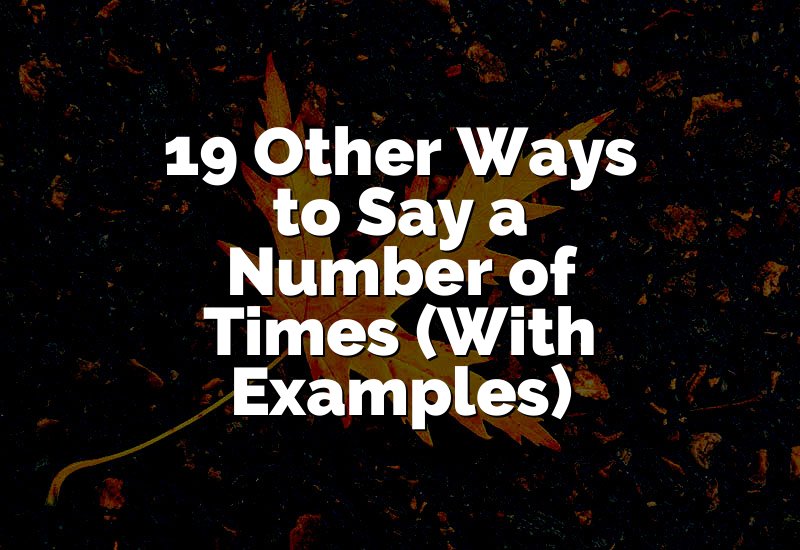You know how sometimes you want to say something is just a little bit, but you get bored of always using the same word? In this article, we are going to explore fun and friendly synonyms for “slightly” like “a bit,” “somewhat,” and “a touch.” You will get meanings, examples, and easy ways to use them in real life.
| Synonym | Meaning | Example |
|---|---|---|
| A bit | A small amount | The tea is a bit hot. |
| Somewhat | To a small degree | I am somewhat tired today. |
| A touch | A very small amount | The soup needs a touch of salt. |
| A little | Small in size or degree | She was a little nervous. |
| Barely | Almost not at all | He barely touched the chair. |
| Hardly | Only just or almost not | I hardly know him. |
| Slight | Very small in amount | There is a slight change in the plan. |
| Tiny | Very small | Add a tiny drop of oil. |
| Minute | Extremely small | The crack is minute. |
| Faintly | Weakly or lightly | She smiled faintly. |
| Marginally | By only a small amount | Prices went up marginally. |
| Just enough | Only a small required amount | The cup was just enough full. |
| Narrowly | By a very small margin | He narrowly missed the ball. |
| Modestly | In a small way | The company grew modestly. |
| Minimally | In the smallest amount possible | The car was minimally damaged. |
| Insignificantly | In a way that is too small to matter | The error changed the result insignificantly. |
| Mildly | To a small degree | He was mildly upset. |
| Softly | Gently and slightly | She softly touched the flower. |
| Gently | Lightly and softly | He gently pushed the door. |
| Partly | Not completely | The sky is partly cloudy. |
| To some extent | In a limited way | I agree to some extent. |
| Comparatively | To a small degree compared to something | The test was comparatively easy. |
| Relatively | Compared to others, a little bit | It was relatively quiet. |
| Scarcely | Almost not | She could scarcely believe it. |
| Slight degree | Small level | There is a slight degree of risk. |
A bit
When you say “a bit,” you are showing something is small or not too much. It is a friendly and casual way to talk about something being only a little. You can use it in daily talk with friends or when you do not want to sound too serious. It makes sentences sound soft and easy to understand. You can use it with food, feelings, or even the weather.
- The movie was a bit boring.
- I feel a bit hungry.
- The road is a bit noisy.
Somewhat
The word “somewhat” is used when something is true, but only in a small way. It is helpful when you want to show something is not fully one way or another. It makes your sentence sound balanced and gentle. You can use “somewhat” in both speaking and writing. It is not too strong, so it works when you want to be polite.
- The cake was somewhat sweet.
- I am somewhat nervous about the exam.
- The house is somewhat old but still strong.
Also Read: MISALIGNMENT Synonyms | 26 Similar Words
A touch
The phrase “a touch” makes things sound gentle and small. It is perfect for describing small changes or small feelings. It is not strong but still clear. People often use it when talking about food, art, or emotions. It makes your words sound nicer and smoother. You can use “a touch” to make things sound lighter and not too heavy.
- She added a touch of sugar to the tea.
- He felt a touch of sadness.
- The shirt has a touch of blue.
A little
The phrase “a little” is one of the most common ways to show a small amount. It works with feelings, things, and actions. You can use it in friendly talk or even in serious moments. It makes your words sound natural and soft. It is short and easy, and people understand it quickly. You can use it almost anywhere without worry.
- I am a little tired today.
- The baby cried a little before sleeping.
- Can you move a little closer?
Barely
The word “barely” means almost not at all. It shows that something just happened, but only in a very small way. It is often used to describe things that are close to not happening. It can also sound a bit dramatic. You can use “barely” when you want to stress how little or how close something was. It adds emotion to what you say.
- She barely passed the test.
- I could barely hear him.
- He barely touched his food.
Hardly
The word “hardly” is similar to “barely.” It means something almost did not happen or was only just enough. It is a strong way to show very little. You can use it with actions, feelings, or time. It often makes the listener understand that something was very close to not happening at all. It adds power to your sentence but still feels natural.
- I hardly know that man.
- She hardly spoke during the meeting.
- There was hardly any food left.
Slight
The word “slight” shows something very small or minor. It can describe changes, differences, or even feelings. It is a soft word that is often used when you do not want to sound too strong. It makes your talk sound lighter. It is often used when you notice something small but still worth mentioning. It fits well in both everyday and formal talk.
- There is a slight chance of rain.
- He made a slight mistake.
- She had a slight smile on her face.
Tiny
The word “tiny” means very small, almost little enough to miss. It is a fun and friendly word. You can use it for size, amount, or even feelings. It makes things sound small and almost cute. People often use “tiny” when they want to show how very little something is. It is a good way to make your talk sound light.
- The puppy is tiny and sweet.
- She added a tiny drop of milk.
- He made a tiny change in the design.
Minute
The word “minute” (said as “my-newt”) means extremely small. It is more formal than “tiny” but still easy to understand. People often use it to show very small differences or details. It makes sentences sound smart but still soft. You can use it when you want to sound a little more serious. It is good for both writing and talking.
- There is a minute crack on the glass.
- The mistake was minute and harmless.
- He noticed a minute detail in the picture.
Faintly
The word “faintly” means weakly or lightly. It is used when something is small enough to almost disappear. People use it often when describing sound, smell, or sight. It makes your words soft and gentle. It is not strong, but it shows something is still there. It is useful when you want to show a small presence.
- She smiled faintly.
- I could faintly hear the music.
- The stars shined faintly in the sky.
Marginally
The word “marginally” means by a very small amount. It often sounds a little formal, but you can still use it in daily talk. It shows that something has changed, but not by much. It is useful when you want to be exact without sounding too strong. It is often used in business, school, or casual chat.
- Prices went up marginally last week.
- The book was marginally better than the movie.
- He is marginally taller than his brother.
Just enough
The phrase “just enough” shows that something is only the small amount needed. It is neither too much nor too little. It makes things sound balanced. People often use it when talking about food, work, or effort. It shows that something is only barely enough to work. It is easy to understand and sounds friendly too.
- The soup had just enough salt.
- He worked just enough to pass.
- There was just enough money for the ticket.
Narrowly
The word “narrowly” means by a very small space or margin. It shows that something almost did not happen. It makes things sound dramatic and close. People often use it for wins, misses, or escapes. It brings attention to how close something was. It adds a bit of excitement to your story.
- He narrowly missed the car.
- She narrowly passed the exam.
- They narrowly escaped the storm.
Modestly
The word “modestly” can mean in a small way, without too much. It makes things sound calm and not extreme. People often use it when talking about growth, changes, or success. It feels polite and not too strong. You can use it when you want to show something is there but not in a big way. It is a soft and balanced word.
- The shop grew modestly last year.
- He smiled modestly at the praise.
- Sales improved modestly over time.
Minimally
The word “minimally” means in the smallest way possible. It shows that something happened but only in a tiny amount. It is often used in formal or casual talk. It shows that things were kept very small. People often use it for effort, change, or damage. It makes your sentence sound exact and careful.
- The car was minimally damaged.
- He tried minimally during the game.
- The house changed minimally after the repair.
Insignificantly
The word “insignificantly” shows something was so small that it almost does not matter. It makes things sound unimportant. It is often used when something is too small to have a real effect. It can sound a little formal but still easy. You can use it when you want to downplay something. It is useful in both speaking and writing.
- The error changed the score insignificantly.
- He was insignificantly late.
- The color is insignificantly different.
Mildly
The word “mildly” means only a little, not strong. It is often used for feelings, reactions, or actions. It makes things sound soft and easy. You can use it when you want to show something is there but not in a big way. It is gentle and keeps the sentence light. It works in both daily talk and formal talk.
- He was mildly upset.
- She laughed mildly at the joke.
- I am mildly interested in the topic.
Softly
The word “softly” means gently and quietly. It shows something is done in a slight or tender way. People often use it when describing actions or voices. It makes your sentence sound kind and warm. It is not strong, but it still shows presence. You can use it for touch, sound, or movements. It gives a soft feeling to your words.
- She spoke softly to the child.
- He softly closed the door.
- She softly touched his hand.
Gently
The word “gently” is used to show something is done lightly and carefully. It is close to “softly,” but it works more for actions. It makes things sound calm and caring. You can use it when describing movement or touch. It is often used when you want to show care. It keeps your sentence soft and nice.
- He gently pushed the chair.
- She gently brushed her hair.
- He gently placed the book down.
Partly
The word “partly” means not completely, only a little. It shows that something is true in a small way but not fully. It is easy to use in daily talk. It makes sentences sound clear but soft. You can use it for weather, facts, or feelings. It helps show that something is half or less than half.
- The sky is partly cloudy.
- He was partly wrong in his answer.
- She is partly to blame.
To some extent
The phrase “to some extent” means in a limited way. It shows that something is true but only a little. It is often used to make your words sound fair and balanced. It is not too strong, but it is also not too weak. People use it in both friendly talk and serious talk.
- I agree with you to some extent.
- The rule helps to some extent.
- He is right to some extent.
Comparatively
The word “comparatively” means compared to something else, only a little. It helps show that something is smaller or lighter when you compare. It makes your words sound balanced. You can use it for tests, work, or even feelings. It often feels polite and calm. It is useful in both casual and formal talk.
- The exam was comparatively easy.
- She is comparatively taller than me.
- The story was comparatively short.
Relatively
The word “relatively” is like “comparatively.” It shows something is small or light when seen against others. It makes your words sound balanced. It is often used to soften strong points. You can use it for size, feelings, or facts. It works in daily talk and serious writing too. It is useful in many ways.
- The class was relatively quiet.
- He is relatively young.
- The road is relatively safe.
Scarcely
The word “scarcely” means almost not at all. It shows that something just barely happened. It is like “hardly” and “barely.” People often use it to add drama or surprise. It is useful when you want to show how close something was. It is a strong way to show very little.
- She could scarcely believe it.
- He scarcely moved during the show.
- There was scarcely any time left.
Slight degree
The phrase “slight degree” means only a small level of something. It makes your talk sound soft and not strong. It shows that something is present but only a little. People use it often when they want to sound gentle. It works for feelings, changes, or facts. It makes your words clear and light.
- There is a slight degree of risk.
- He felt a slight degree of pain.
- The plan had a slight degree of change.

Final Thoughts
As you can see, there are many ways to say “slightly” without using the same word again and again. With these synonyms, you can make your talk more fun, colorful, and smooth. Each one gives a little different feeling, so you can choose the one that fits your mood best. Try them in your daily talk and enjoy how fresh they sound.









